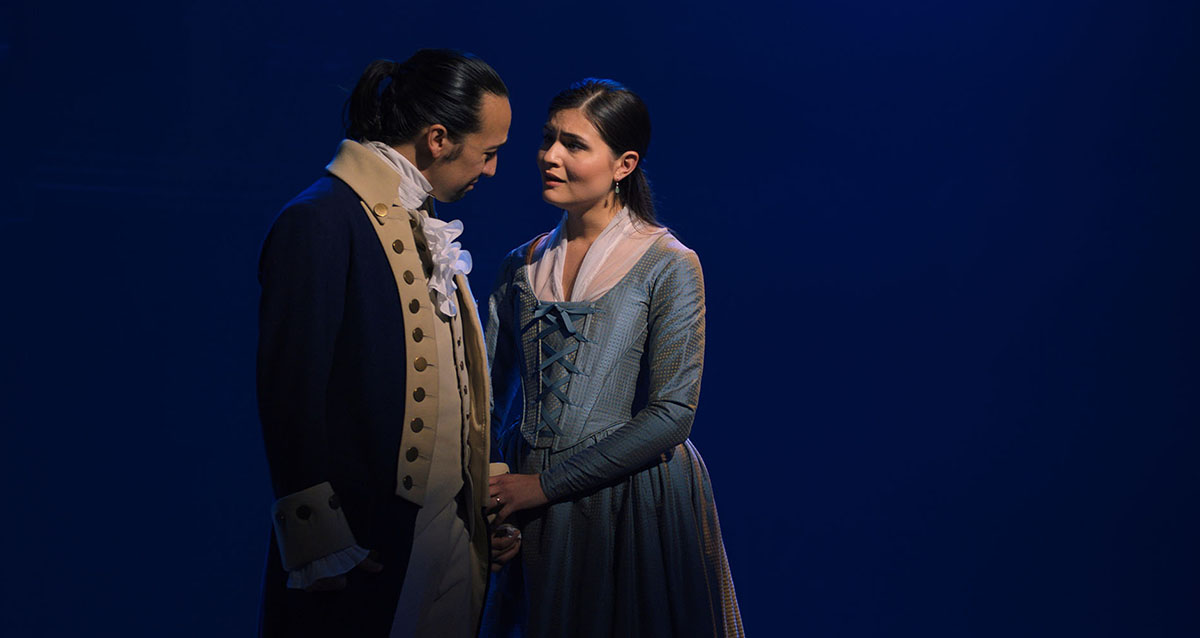The world is being captivated with the cultural phenomenon of Hamilton, which has been transported from Broadway into our living rooms via Disney Plus, which launched the streaming event of the year this past week. Taken from Ron Chernow’s biography of founding father, Alexander Hamilton, the story of this smarter self-starter immigrant was transformed into hip-hop inspired musical couplets by Lin-Manuel Miranda.
One doesn’t have to look deep into the story to follow the family fights and feuds that bring to mind common themes for those facing family law matters. Of course, the Texas Family Code, our state’s compilation of laws that control marriages, divorces, marital property rights, adoptions, children’s and parent’s rights. Most all of these relationships and issues pop up in Hamilton.
It’s not too deep into Act One before Alexander Hamilton marries the wealthy middle Schuyler sister, Eliza. Daughter of the prominent Philip and Catherine Schuyler, Eliza fell quickly for the young patriot, thanks to the assist of her older sister, Angelica. While the Schuyler-Hamilton wedding is a ceremonial wedding, the Texas Family Code allows for recognition of both ceremonial or formal as well as informal marriages, if three elements exist: An agreement to be married, living together as a married couple, and representing themselves to others as a married couple.
While under the admiration and command of President George Washington, Hamilton lays the foundation for the young nation, writing most of the Federalist Papers and taking the reins of the U.S. Treasury. During these years, he also fell under the spell of a young woman, Maria Reynolds, and they had an affair.
This came to play a significant role in the fall of his reputation and it also put his marriage in jeopardy. Hamilton confesses his failures publicly under the threat of blackmail from the husband of Maria Reynolds. While he did remain married, that happened in large part due to a tragedy—the untimely death of his son Phillip in a duel gone wrong.
Divorce was a different matter in those days, but because Hamilton publicly admitted to adultery, it would have supported a claim of adultery as grounds for a divorce in modern Texas. Although Texas is a no-fault divorce state, adultery as a grounds can support a claim for a disproportionate division of the community estate.
Following the famous duel between Hamilton and Aaron Burr, which led to Hamilton’s death, Eliza opened a private orphanage, the first in New York State. Texas today offers many protections for the children who would have been in the care of Eliza Hamilton’s organization. The Children’s Bill of Rights and the Loving and Caring Order are two tools in Texas that can provide a strong guidance for the right of every child to a loving and safe home and life. Parents, whether ever married or not, are given some guidance on ways that their behavior and priorities shift to support children as they grow. This is portrayed movingly and affectingly in the duet of two fathers, “Dear Theodosia.”
Of course, the Texas Family Code wasn’t around when Hamilton was rising and falling. But even as I found myself enveloped by the story of Hamilton, Jefferson, Washington, Madison and Lafayette, as sparked by Miranda and the rest of the amazing Broadway cast, I couldn’t help imagine how we might have all helped Alexander or Eliza if they were modern-day Texans instead of newly-independent New Yorkers of a previous era.

